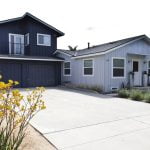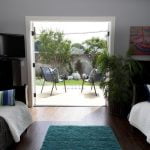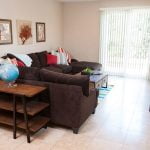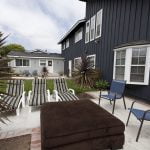Windward Way Recovery - TREATMENT REVIEWS
Located in Southern California, Windward Way Recovery provides a drug and alcohol addiction program that assists thousands of men and women in maintaining and developing fundamentals for long-term sobriety. The rehab promotes real-world life skills and a productive and healthy recovery experience by offering their clients research-based addiction and dual-diagnosis treatment in a top-tier environment. In addition, Windward Way uses fact-based content about addiction medicine, recovery treatment, and behavioral health conditions to offer the best substance abuse program for men and women ages 18 or more.
Windward Way rehab achieves its goal by blending innovative and unique approaches to addiction treatment and providing quality healthcare for those struggling with an addiction. Furthermore, this treatment center in Southern California provides clients with a sense of investment, planned structure, and empowerment to achieve long-term recovery goals.
Rehab aims to help individuals recover from addiction and remain sober by providing them with purpose, community, and connection. A dedicated multidisciplinary treatment team is also available to help clients recover in comfortable residences or modern clinical sites to live full lives.
Programs Available at Windward Way Recovery
The programs offered by the recovery center to their clients are given below:
Detox
Windward Way rehab utilizes a transitional recovery model that helps patients move into less structured treatment programs. This model also helps them receive round-the-clock supervision from specialized doctors and clinicians to gain skills and confidence in sobriety. On top of that, stopping an addictive substance abruptly can be dangerous, uncomfortable, and even life-threatening. This is why a person should never detox without appropriate support. Rehab’s medically supervised detox and dually accredited addiction program help people to manage withdrawal symptoms safely.
We firmly believe that a person who is physically or mentally unwell will struggle to tackle their physical or mental health issues. Therefore, detox’s purpose is to keep a person’s dignity unscathed and tackle the physical side of addiction. The detox process of Windward’s health care minimizes the negative impact of withdrawal symptoms and helps make the patient’s experience comfortable and safe.
Alcohol Addiction Treatment and Rehab
Windward Way rehab designs a custom-fit plan to solve patients’ issues by offering an inpatient and outpatient services for those having alcohol or substance abuse addiction. Rehab therapy teaches individuals to replace negative behaviors with constructive, functional behavior patterns. In addition, a clinically supervised alcohol treatment program establishes a foundational structure to help start a new point in the patient’s life and focuses on teaching them to take personal responsibility.
At the treatment center, an admissions counselor can listen to clients’ stories, provide accurate and up-to-date information, and offer them a special addiction treatment program. Moreover, medications and other services help people solve serious substance abuse problems and maintain sobriety. For patients’ convenience, rehab frequently offers psychiatric sessions and family counseling.
Drug Addiction Program by Windward Way Recovery
There are many strategies followed by Windward Way rehab drug addiction program to help clients glide towards recovery. Some of these strategies are discussed below:
12-Step Facilitation
The addiction recovery models are based on outpatient facilities like Alcoholics Anonymous and Narcotics Anonymous. 12 individualized steps are designed to help people achieve and maintain abstinence from substances.
Cognitive Behavioral Therapy (CBT)
This therapy focuses on the relationship between feelings, behaviors, and thoughts. CBT is used to strengthen the client’s self-awareness and ability to self-regulate. In addition, this therapy manages stress without needing to engage in substance abuse and is used as a building block for future programs.
Contingency Management (CM)
CM is recommended for those who are at an early stage of recovery. Also known as motivational incentives, it provides a reward for meeting an individual’s treatment goals. This therapy effectively increases treatment success and facilitates abstinence from drugs and alcohol.
Motivational Interviewing
This strategy enhances the clients of Windward Recovery to find motivation and make positive behavior changes. This is a client-centered approach for those with mixed feelings about changing their behavior. Moreover, rehab therapists prioritize their clients’ improvement and regularly check their routines to maximize progress.
The Matrix Model
This is a therapeutic approach to treating drug abuse and addiction. A rehab therapist helps clients build trust and belief in themselves through therapy and offering rewards. The Matrix Model is a combination of many different therapeutic methods.
Rational Emotive Behavior Therapy (REBT) helps people learn how to manage their thoughts, emotions, and behaviors. Using REBT, patients discuss their issues, illogical thoughts, and negative thinking patterns to overcome their problems.
For further assistance, medicines help people achieve and maintain sobriety, which is one of the biggest reasons many drug addiction therapy programs depend on medicinal support. At Windward Way Recovery, medications are meant to help clients and relieve them from distressing and painful withdrawal symptoms only. The following are the two most common medicines prescribed at the rehab:
- Disulfiram, which causes a physical reluctance to drinking
- Naltrexone, which minimizes the client’s mental inclination to continue drinking
FAQs
How does admission take place at Windward Way Recovery?
Windward Way Recovery is always happy to stay on the phone with their clients and answer their questions. Clients can discuss insurance policies, accommodations and travel arrangements, and other benefits to cover treatment costs. They can also discuss each stage of the rehab’s addiction treatment program with the specified staff.
From there, an experienced treatment intake coordinator asks some basic questions from the clients (and sometimes family members) about their mental and physical health and their drug or alcohol addictions. Afterward, they complete the necessary paperwork and discuss rules and regulations with patients. In addition, Windward Way rehab also determines whether an individual requires detoxification and makes all the necessary arrangements for admission to clinically supervised detox.
Will a client be prescribed treatment medications?
Medications help people to recover from addiction, reduce long-term withdrawal symptoms and maintain sobriety. Based on the intake assessment and depending on addictions severity, some of the pharmaceuticals that are used to prevent relapse, manage withdrawal symptoms, and better control recurring problems are given below:
- Benzodiazepines and Antidepressants: They reduce symptoms of alcohol abuse such as headaches, nausea, convulsions, insomnia, or delirium tremens.
- Opioid Antagonists: They block the effects of other opioids in the brain and make the body reject any form of opioid. They are used to treat alcohol and opioid dependence.
- Opioid Agonists: These substances produce milder opioid effects and are used for managing opioid dependence or withdrawal management.
What are the rules and expectations at an Inpatient Center?
Some of the very important rules and expectations in an inpatient center of Windward Way Recovery are discussed below:
- Books and other Reading materials can only be spiritual or recovery-related
- Access to computers and cell phones is restricted or greatly limited
- In rehab, relationships among clients are prohibited, owing to which couples are not allowed to attend rehab together
- Family members can visit their loved ones according to the schedule offered by the rehab
- Books, games, TV, music, and movies have to be approved by the treatment team first
Windward Way Recovery- Cost/Prices, Center/Clinic/Retreat/Resort Facilities, Inpatient Treatment Program Services
- Title Windward Way Recovery
- Treatment Program Addiction / Mental Health / Alcohol Addiction / Drug Addiction / Shopping Addiction / Pathological Gambling / Sex Addiction / Behavioural Addiction / Opioid Addiction / Detox / Narcotics Addiction / Psychostimulant Addiction / Substance Abuse / Anxiety Disorders / Depression
- Location United States/ Los Angeles/ California
- Languages English
- Accommodation Shared Room
- Environment Coastal, City
- Age Young Adult, Adult
- Approach 12 Step, Medical, On-Site Detox
- Method AA/NA Meetings, Cognitive Behavioral Therapy (CBT), Medical Detox
- Aftercare Yes
- Amenities Private Residence, Insurance Accepted, Leisure Activities
- Gender Women & Men
Windward Way Recovery Video
Windward Way Recovery Contact
- E-mail info@windwardway.com
- Website https://windwardway.com/
- Phone +1 8443560079
- Address 3822 Campus Dr Suite 500 Costa Mesa, CA, US 92626

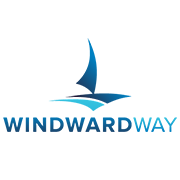 Windward Way Recovery
Windward Way Recovery



